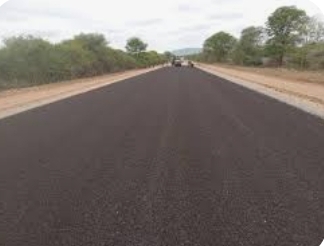
Minister of Finance, Economic Delvelopment and Investment Promotion, Professor Mthuli Ncube, has unveiled a transformative US$7.5 billion National Budget for 2025, themed
“Building Resilience for Sustained Economic Transformation.”
Presented on November 28, 2024, at the New Parliament Building in Mt Hampden, Harare, with President Emmerson Dambudzo Mnangagwa as the Guest of Honour, the budget reflects a commitment to fostering economic growth and addressing pressing societal challenges.
The fiscal plan sets a projected economic growth rate of 6 percent for 2025, driven by expected sectoral expansions, including 12.8 percent growth in agriculture, 5.6 percent in mining, 9.9 percent in Information Communication Technology (ICT), and a 10.6 percent increase in power generation.This budget stands out for its people-centred initiatives aimed at addressing the needs of citizens while building a resilient economy.
To ease household burdens, the government has removed Value Added Tax (VAT) on Liquefied Petroleum Gas (LPG), making cooking gas more affordable and accessible. In a health-conscious move, Treasury has increased the sugar tax on cordials such as Mazoe and Quench from US$0.001 per gramme to US$0.005 per gramme to aid the fight against cancer.
Additionally, unhealthy fast foods will now be subject to a special tax to promote healthier eating habits among citizens. Recognizing the need to broaden the tax base, the government has introduced a rental tax to finance public programs and a 10 percent withholding tax on gambling proceeds, ensuring that revenue from betting benefits the public purse.
In response to the devastating impacts of climate change, the budget allocates substantial resources to bolster agricultural resilience. Key investments include dam construction, irrigation development, rural development initiatives, farmer contracting, and the procurement of grain for the strategic grain reserve.
These measures underscore the government’s philosophy, “Nyika Inovakwa Nevene Vayo” (A Nation is Built by Its Own People), emphasizing self-reliance and sustainable development.
To promote the transition to cleaner energy and green technologies, the government has extended duty rebates for equipment used in establishing solar-powered charging stations for electric vehicles, encouraging their adoption.
This progressive move aligns with global trends and positions Zimbabwe to take advantage of the growing electric vehicle market.Through this pro-people fiscal framework, Zimbabwe not only aims to stimulate economic growth but also to address critical social and environmental challenges.
By focusing on inclusive development, the 2025 National Budget lays a solid foundation for resilience and sustained transformation in line with the country’s Vision 2030.




